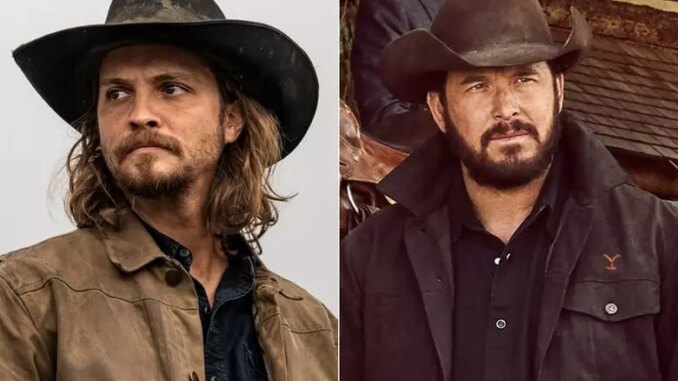
Behind the Majesty: On-Set Tensions and Controversies Behind Yellowstone
Yellowstone, with its breathtaking Montana vistas and gripping tales of family, power, and survival, has captivated audiences worldwide. The Dutton family's fierce protection of their ancestral land against encroaching forces, both external and internal, mirrors a more turbulent reality behind the scenes of the show itself. Beneath the veneer of cinematic grandeur, "Yellowstone" has been plagued by whispers of on-set tensions and controversies, hinting at a drama as compelling, and perhaps as ruthless, as the one playing out on screen.
One of the most persistent narratives surrounding the show revolves around alleged personality clashes, particularly with the show's creator and writer, Taylor Sheridan. While his vision has undoubtedly been the driving force behind "Yellowstone's" success, reports have surfaced suggesting his creative control can be stifling and lead to disagreements with actors. The departure of Wes Bentley, who played Jamie Dutton, from earlier seasons, fueled speculation about friction between the actor and Sheridan regarding the character's arc. While Bentley later returned, the rumors lingered, contributing to the perception of a demanding and uncompromising atmosphere.
Furthermore, the intensity of the roles themselves may have contributed to on-set tensions. The characters in "Yellowstone" are deeply flawed, often resorting to violence and morally questionable tactics. Living within those characters for extended periods can undoubtedly take a toll on the actors, potentially leading to friction both on and off camera. Imagine spending months embodying the hardened patriarch John Dutton, played by Kevin Costner, known for his stoicism and unwavering commitment to his family's legacy. The pressure to embody such a complex and often contradictory character could easily translate into heightened emotions and potential conflicts behind the scenes.
However, the most significant controversy to engulf "Yellowstone" surrounds Kevin Costner's exit, which ultimately impacted the show's future. Reports suggested that Costner's desire to dedicate more time to directing and starring in his own Western film franchise, "Horizon: An American Saga," clashed with Sheridan's vision for "Yellowstone." Negotiations regarding Costner's availability reportedly broke down, leading to his departure from the show and the decision to end "Yellowstone" after the fifth season. This high-profile departure sparked a media frenzy, with accusations of ego clashes, scheduling conflicts, and creative differences flying between the parties involved. The situation highlighted the precarious nature of long-running television shows, where the demands of actors' careers and the creative vision of writers can sometimes collide in spectacular and disruptive ways.
Beyond personal disagreements, "Yellowstone" has also faced criticism regarding its portrayal of Native American characters and their relationship with the Dutton family. While the show attempts to grapple with the complex history of the American West and the displacement of Native American communities, some argue that its portrayal reinforces harmful stereotypes and fails to offer a nuanced perspective on the struggles faced by indigenous peoples. The recurring conflict between the Duttons and the Broken Rock Reservation, led by Chief Thomas Rainwater, often paints Native Americans as antagonists, further perpetuating a narrative of land disputes and historical grievances without fully exploring the systemic injustices that fueled them. This controversy raises crucial questions about representation and the responsibility of creators to portray marginalized communities with sensitivity and respect.
In conclusion, the allure of "Yellowstone" extends beyond its stunning landscapes and dramatic storylines. The whispers of on-set tensions and controversies, from reported personality clashes and demanding creative control to the high-profile departure of a leading actor and criticisms of its portrayal of Native Americans, offer a glimpse into the complex dynamics that exist behind the scenes of this popular show. While these controversies may not diminish the show's entertainment value for some, they underscore the importance of examining the power dynamics, creative compromises, and representational choices that shape the narratives we consume. Like the rugged landscape and the ruthless characters it portrays, "Yellowstone" is a production fraught with its own internal conflicts and challenges, a stark reminder that the drama extends far beyond the screen.
